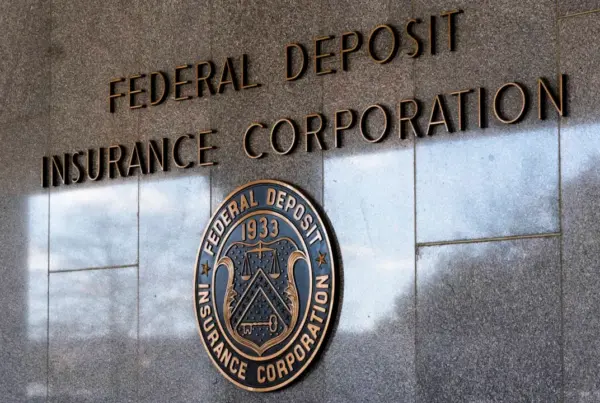FDIC’s Proposed Brokered Deposits Rule: Key Insights for Financial Institutions
Introduction
On July 30, 2024, the Federal Deposit Insurance Corporation (FDIC) proposed a significant regulatory update concerning brokered deposits, aiming to redefine the existing framework governing “deposit brokers.” This proposed rule is essential for enhancing regulatory oversight and consumer protection within the banking sector. The initiative follows historical challenges related to brokered deposits, particularly highlighted by previous enforcement actions that identified systemic risks and vulnerabilities in the banking system.
The primary concern driving this regulatory action is the need to adapt to the evolving financial landscape, particularly with the increasing involvement of fintech companies and other non-traditional banking entities. By refining the definition and regulatory requirements surrounding brokered deposits, the FDIC seeks to strengthen the overall stability and integrity of the banking system.
Key Regulatory Changes & Analysis
1. Expansion of the Definition of Deposit Broker
The proposed rule significantly revises the definition of “deposit broker,” broadening its scope to encompass a wider range of entities involved in deposit placement activities.
- Previous Definition: Previously, a deposit broker was defined as an entity that places deposits on behalf of others for compensation.
- New Definition: The proposed rule expands this definition to include entities that facilitate deposit placements without direct compensation, thereby capturing a broader spectrum of market participants.
This change aims to ensure comprehensive regulatory oversight over all relevant entities, enhancing consumer protection.
2. Enhanced Reporting Requirements
The FDIC proposes to implement more stringent reporting obligations for deposit brokers.
- New Reporting Obligations: Deposit brokers will be required to submit detailed information regarding their activities, including the sources of deposits and the financial institutions involved.
- Impact on Compliance: Financial institutions must prepare for increased compliance costs and operational adjustments to meet these new reporting standards.
3. Clarification of Exemptions
The proposed rule clarifies the exemptions applicable to certain entities from being classified as deposit brokers.
- Specific Exemptions: The FDIC outlines specific scenarios where entities may not be classified as deposit brokers, including certain transactions involving affiliates.
- Implications for Financial Institutions: Institutions must carefully evaluate their operations to determine eligibility for these exemptions, ensuring compliance with the new regulatory framework.
Legal and Industry Implications
The proposed regulatory changes present several implications for financial institutions and deposit brokers:
- Compliance Burdens: Institutions may face increased compliance costs associated with the expanded definition and enhanced reporting requirements.
- Regulatory Risks: Non-compliance with the new regulations could lead to significant penalties and enforcement actions from the FDIC.
- Litigation Risks: As the regulatory environment evolves, affected parties may encounter legal challenges related to the interpretation of the new definitions and requirements.
To mitigate these risks, financial institutions should proactively assess their compliance frameworks and operational strategies.
Recommended Actions & Compliance Strategies
To effectively navigate the proposed rule, financial institutions and deposit brokers should consider the following actions:
- Review and Update Compliance Programs: Conduct a comprehensive review of compliance programs to align with the new regulatory requirements.
- Training and Education: Implement training initiatives for staff to ensure understanding of the implications of the proposed rule and necessary compliance measures.
- Monitor Key Deadlines: Stay informed about the timeline for final implementation and any required regulatory filings.
- Engage in Public Comments: Affected parties should actively participate in the public comment period to influence the final rule.
Conclusion & Next Steps
The FDIC’s proposed rule on brokered deposits signifies a pivotal shift in regulatory oversight and compliance expectations for financial institutions. The timeline for implementation remains to be finalized, and stakeholders should prepare for potential adjustments based on public feedback and further regulatory developments.
As the financial landscape continues to evolve, institutions must remain vigilant in adapting to these changes to mitigate risks and ensure compliance with FDIC regulations. Legal challenges may arise as the industry responds to the new rule, emphasizing the importance of proactive engagement and strategic compliance planning.
For ongoing updates regarding this regulatory change and its implications, financial institutions are encouraged to monitor the FDIC’s announcements and consult with legal counsel to navigate the complexities of compliance effectively.


